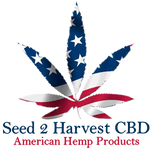What is the difference between THC and THCA?
The world of cannabis is complex and fascinating. At its core are cannabinoids, the chemical compounds that give the plant its unique properties. Two of these cannabinoids, THC and THCA, are often mentioned in discussions about cannabis. But what exactly are they?
In this article, we delve into the science behind these two compounds. We'll explore their chemical structures, effects on the body, and legal status.
Whether you're a recreational user, a medical patient, or simply curious, understanding the difference between THC and THCA is crucial.
Understanding Cannabinoids: THC and THCA
Cannabinoids are the active compounds found in cannabis.
Among them, THC and THCA are particularly noteworthy.
THC, or tetrahydrocannabinol, is the psychoactive compound that produces the "high" associated with cannabis use. It's the most abundant form of THC, often referred to as Delta-9 THC.
On the other hand, THCA, or tetrahydrocannabinolic acid, is a non-psychoactive precursor to THC. It's found in raw and live cannabis, often in higher concentrations than THC.
Chemical Structures of THC vs THCA
The chemical structures of THC and THCA are similar, but with a key difference.
THC contains a cyclic ring, while THCA has an extra carboxyl group. This extra group is what makes THCA non-psychoactive.
Decarboxylation: The Transformation Process
Decarboxylation is the process that transforms THCA into THC.
It's triggered by heat and light, which remove the extra carboxyl group from THCA, turning it into the psychoactive THC.
Psychoactive Effects: THC's Impact on the Body
THC is known for its psychoactive effects. When consumed, it interacts with the endocannabinoid system in our bodies, leading to a variety of effects.
These effects can include altered perception, mood changes, increased appetite, and relaxation. The potency of these effects has increased over the years due to selective breeding of cannabis plants for higher THC content.
However, it's important to note that THC's effects can vary greatly depending on the individual and the method of consumption.
The Non-Psychoactive Nature of THCA
Unlike THC, THCA does not produce intoxicating effects. This makes it a preferred option for those seeking the therapeutic benefits of cannabis without the high.
THCA interacts with the endocannabinoid system differently than THC, potentially offering anti-inflammatory and neuroprotective properties. Its non-psychoactive nature is due to the extra carboxyl group in its chemical structure, which is removed during decarboxylation to produce THC.
Legal Status: THC vs THCA
The legal status of THC varies widely around the world. In many places, it's considered a controlled substance due to its psychoactive effects. This means that possession, sale, and use of THC can be subject to legal penalties.
On the other hand, THCA typically does not fall under the same legal restrictions. This is because it's a non-psychoactive compound found in raw cannabis, which is not typically associated with misuse or addiction.
However, the legal landscape for cannabis and its compounds is complex and constantly changing. It's always important to understand the laws in your specific location.
Testing and Regulation
Accurate testing methods are crucial in the cannabis industry. They help determine the levels of THC and THCA in cannabis products. This information is important for consumers, healthcare professionals, and regulators alike. It ensures product safety, efficacy, and compliance with laws and regulations.
Consumption and Availability
THC is commonly consumed through smoking, vaporizing, or edibles. These methods allow for the decarboxylation process to occur, converting THCA into THC. The potency of THC in cannabis has increased over the years due to selective breeding.
THCA, on the other hand, is often found in raw cannabis juices or tinctures. It's also present in fresh cannabis plants. The stability of THCA makes it suitable for storage, but it can gradually convert to THC over time.
Methods of Consuming THC and THCA
The method of consumption can greatly affect the experience of THC and THCA. For instance, smoking or vaporizing cannabis can produce immediate psychoactive effects due to the presence of THC.
In contrast, consuming raw cannabis or tinctures containing THCA does not produce intoxicating effects. This makes it a preferred option for those seeking therapeutic benefits without the high. However, the bioavailability of THC and THCA can vary depending on the method of consumption.
Potential Benefits and Medical Applications
THC is known for its euphoric effects, but it also has potential medicinal properties. It can induce relaxation, increase appetite, and alter perception, which can be beneficial for certain medical conditions. Both THC and THCA have been studied for their potential anti-cancer properties.
THCA, while non-intoxicating, has potential anti-inflammatory and neuroprotective properties. Some people use THCA for its potential to relieve symptoms without impairing cognitive function. It may also contribute to the entourage effect, enhancing the therapeutic properties of cannabis.
The debate over the medical benefits of THC vs THCA is ongoing. Advocates exist for both sides, and the interest in THCA is growing among the scientific community and cannabis enthusiasts alike.
Research and Future Prospects
Research on THCA is still in its early stages, but it shows promise for various medical applications. The future of cannabis research includes further investigation into the roles of THC and THCA in health and wellness.
Conclusion: Making Informed Choices
Understanding the differences between THC and THCA is crucial for making informed decisions about cannabis use. Whether for recreational or medicinal purposes, knowledge about these compounds can help consumers avoid unwanted effects and maximize benefits. As the cannabis industry evolves, so does our understanding of these complex and fascinating compounds.
Recent Posts
-
Illegal THC Vapes in Texas: Safe Alternatives You Can Enjoy
In recent years, Texas has tightened regulations around THC vapes, making many products illegal to b
-
The Refreshing Rise of THC Seltzers: Benefits, Effects, and Duration Explained
THC Seltzers The world of cannabis-infused beverages is expanding fast — and THC seltzers are leadin
-
Top CBD Gummies for Better Sleep
Sleep is vital for our health and well-being. Yet, many of us struggle to get a good night's rest.En



